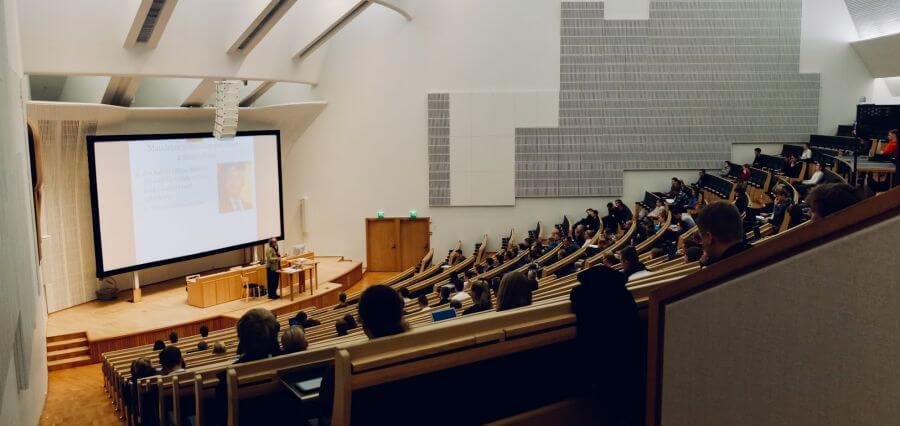Romanian universities have a rich history of excellence, and their reputation continues to attract students from all over the world. In particular, Romanian universities are highly regarded for their top-tier programs in medicine and technology, offering students an exceptional education that prepares them for success in their chosen fields.
One of the oldest and most respected institutions of technical education in Romania is the Cluj Polytechnic Institute, which has a proud history dating back to the 19th century. Founded in 1920 as the Industrial College of Cluj-Napoca, the institute underwent several reorganizations before being established as the Cluj Polytechnic Institute in 1953.
In 1992, the Polytechnic Institute was renamed the Technical University of Cluj-Napoca. Since 2012, the Technical University of Cluj-Napoca (TUCN) has had twelve faculties following the merger with the North University of Baia-Mare, which became the North University Center in Baia-Mare. Being connected to the international demands of current times and characterized by dynamism in spirit and action, the Technical University of Cluj-Napoca has always been among those academic institutions that lead to prosperity and progress in society.
In 2018, the Romanian Agency for Quality Assurance in Higher Education awarded the institution with the ‘Highest Degree of Trust in HE.’ In 2019 TUCN received the status of international university of excellence (4 stars) following the external audit conducted by QS Stars Rating System (UK). Currently, the Technical University of Cluj-Napoca represents a pole of academic and scientific excellence, unanimously recognized regionally, nationally, and internationally.
Becoming Strongly Anchored in the European Education
TUCN’s ambition and future target is to become a university strongly anchored in the European education, research, innovation, and digitization area by promoting and supporting performance and excellence in all fields of activity. In accordance with the TUCN charter, the university’s mission is to develop value in people, processes, and products.
Thus, achieving a high-quality level of education and advanced scientific research in a national and international environment will be pursued, responding to the needs of the individual’s professional and social development and society’s progress. Quality, honesty, and responsibility are essential values of the academic community that will transform today’s vision into tomorrow’s reality.
Wide Range of Domains
The educational offer, aligned to the Bologna system, includes more than 180 bachelor’s and master’s programs and 14 doctoral fields, as well as life-long learning programs. These cover a wide range of domains, from engineering, architecture, and fundamental sciences to social sciences, humanities, and arts.
Due to its complex structure, TUCN has a strong regional dimension, which essentially differentiates it from other universities in Romania. Thus, TUCN is recognized as a highly qualified human resource provider for the Northwest region of Romania through its two main campuses (Cluj-Napoca and Baia Mare) and four subsidiaries (Alba Iulia, Bistrița, Satu Mare și Zalău), providing multiple links within the regional innovation and entrepreneurship ecosystem.
From the beginning to the present, TUCN has prepared for the labour market with over 93,000 graduates for large regional, national, and international companies.
Meeting New Demands
A constant challenge is the permanent adaptation of the curriculum to the demands and needs of the socio-economic environment. In this regard, the strong relations with several large companies have led to the development – in collaboration with these companies – of master’s degree programs of great interest.
Another important issue is the widespread interest in artificial intelligence in the socio-economic environment. On this line, an important initiative of TUCN is the establishment of the Artificial Intelligence Research Institute, which will represent a banner for research in the field at regional, national, and international levels.
Finding Ways through Hurdles
The years of the pandemic will remain in the memory through the multiple implications and effects they produced in all fields, especially in that of education, through the remodelling, against time, of the didactic paradigm of teaching-learning-evaluation, as a special challenge. All higher education institutions in the country and abroad had to act quickly and efficiently to face the challenges generated by the transition to online education, which caused multiple challenges for both students and teachers.
The Technical University of Cluj-Napoca responded and immediately adapted to the new requirements imposed by changes at the global level. The new type of education assumed the digitization of the teaching-learning-evaluation process, the acquisition of new skills, the development of high-performance tools for mediated interaction, accessibility, and ease to use, and the creation of digital courses and open educational resources.
Much of what it meant to ensure an efficient and stable communication and teaching platform in the university during the pandemic was solved with professionalism by a group of teaching colleagues coagulated around the department created in 2019, the Virtual Campus – TUCN.
Encouraging Entrepreneurial Spirit
Within the Student Entrepreneurial Society structure of TUCN, students benefit from activities aimed at supporting, developing, and encouraging their entrepreneurial spirit in collaboration with specialists from partner companies.
Another department that organizes support activities for students is the Career Counseling and Guidance Center: integration activities for first-year students, facilitating meetings between company representatives and students, and preparing for the interview in the hiring process.
Students also participate in national and international scientific competitions and demonstrations in summer schools and inter-university exchanges on various topics within student organizations.
Interdisciplinary and Applied Approach
11 of the university’s 12 faculties provide study programs based on STEM education – science, technology, engineering, and mathematics – in an interdisciplinary and applied approach:
Faculty of Architecture and Urban Planning, Faculty of Automation and Computer Science, Faculty of Automotive, Mechatronics and Mechanical Engineering, Faculty of Civil Engineering, Faculty of Electronics, Telecommunications, and Information Technology, Faculty of Materials and Environmental Engineering, Faculty of Building Services Engineering, Faculty of Electrical Engineering, Faculty of Industrial Engineering, Robotics and Production Management, Faculty of Engineering, Faculty of Humanities, Faculty of Sciences.
Openness to the International Space
Bachelor’s and master’s study programs in foreign languages, along with master’s programs developed together with the socio-economic environment, are tools that provide graduates with skills with openness to the international space and solid specialized training.
To join the community of the Technical University of Cluj-Napoca in the process of becoming a professional, whether it is through bachelor’s, master’s, or doctorate studies, complemented by continuous improvement studies, to remain involved, determined, and proactive in lifelong learning.
Transforming Visions into Reality
The ambition of the university and the future target is to become a university strongly anchored in the European space of education, research, innovation, and digitization.
In order for the proposed vision to become a reality, one of UTCN’s strategic objectives is to increase the competitiveness and attractiveness of the Technical University of Cluj-Napoca through the development and consolidation of its size and international orientation, seen as a catalyst for major changes and improvements in education, scientific research, innovation, and artistic creation, to respond to contemporary local, regional, national and global challenges.
The university has the special chance to be a member of The European University of Technology EUt+ (https://univ-tech.eu/), whose objective is to design the future of university education at the European level by implementing new collaboration models. The eight-member universities of the European University of Technology – University of Technology of Troyes, Cyprus University of Technology, Technical University of Sofia, University of Applied Sciences Darmstadt, Technological University Dublin, Riga Technical University, Polytechnic University of Cartagena, and TUCN share the same vision – Think Human First.
EUT+ defines itself as a European university consortium of the future, which contributes directly to the development of European technical higher education by guaranteeing the automatic recognition of credits, the creation of a common curriculum at bachelor’s, master’s, and doctoral levels that will ultimately lead to a single EUt+ degree, the integration of study programs, the facilitation of student mobility, the stimulation of academic staff mobility, the stimulation of creativity and innovation through the development of laboratories and centers of common research, the development of a common infrastructure.
Website: https://www.utcluj.ro/en/
EUT+ Address: https://www.univ-tech.eu/









